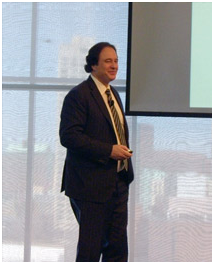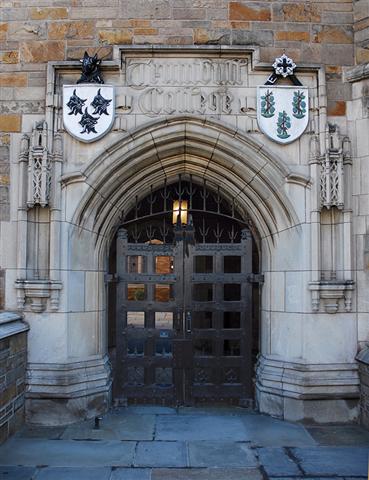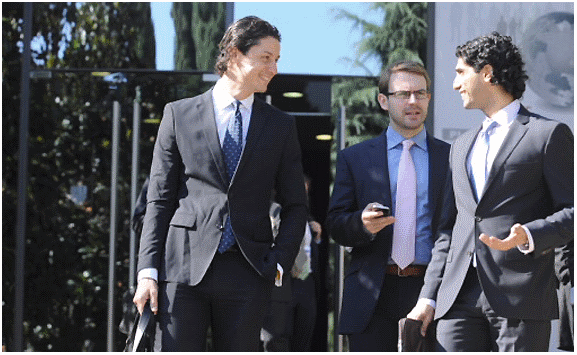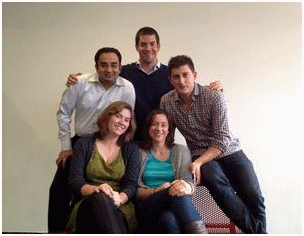MIT Sloan Private Equity Symposium addresses the need for new markets
Published: April 10, 2013
Private equity firms must expand beyond their traditional geographic interests and industry expertise to be successful, Bain Capital’s Steve Pagliuca told a gathering of industry professionals at the 10th Annual MIT Sloan Private Equity Symposium on April 5.
“The successful players are going to have a huge value-added focus,” said Pagliuca. “You’re going to have to have a global reach, deeper expertise, and the ability to find and evaluate the best deals in the market.”

Pagliuca, managing director of the global investment firm and co-owner of the Boston Celtics, was the closing keynote speaker at the symposium, headlined, “Growth Beyond Traditional Markets.” It was held at the MIT Media Lab.
Pagliuca explained that private equity firms need to search for new markets now that tough economic times are reducing returns investors can expect from U.S. and European investments.
He noted that Chinese leaders “wake up every day” looking for ways to put capital to work to lift their people out of poverty. India’s government is working to become friendly to investment. And Brazil and Latin America are “very exciting places these days,” with strong natural resources.
As those countries grow, Pagliuca said, businesses need capital and expertise to grow, creating opportunities for private equity firms.
Global presence isn’t enough. Private equity firms must have deep knowledge of many industries to “grow and transform and build” businesses in those regions. For instance, Bain has energy, health care, retail, industrial, and high technology divisions. It also offers companies every level of capital—venture, debt, and private equity.
Pagliuca, a member of the nonpartisan Campaign to Fix the Debt, said that the federal government must do more to control the national debt, which he called a drag on the economy and private equity investment.
The national debt could be cut in 15 years by raising taxes and cutting spending by .3 percent annually, Pagliuca said.
MIT Sloan students organized the symposium, which was attended by approximately 250 private equity and venture capital industry leaders and students. Students selected the theme and the panels on creating middle market operational value, energy, health care in Latin America, technology, and finance.
Phil Canfield, managing director of Chicago private equity firm GTCR, and Gary Loveman, CEO of Caesars Entertainment Corp., also gave keynote addresses.
“This is a great example of action learning—working an event outside the classroom, finding it relevant to the industry you aspire to work in, and gaining management experience,” said Mike Reynolds, MBA ’14, one of the organizers of the symposium.
The symposium was sponsored by Choate Hall & Stewart LLP, Ernst & Young, Mekko Graphics, and Pitchbook.
More Articles
Yale University earns 12.5 pct return in FY 2013
By Manuela Badawy
NEW YORK, Sept 24 Tue Sep 24, 2013 5:21pm EDT
(Reuters) - Yale University's endowment
earned a 12.5 percent investment return for the year ending June
30, 2013, the university said on Tuesday.
The university's endowment value grew to $20.8 billion on
June 30, 2013 from $19.3 billion on June 30, 2012.
The Connecticut-based university benefited from investment
gains of $2.3 billion and spending distributions of more than
$1.0 billion, it said in a statement.
Spending from the endowment for Yale's 2014 fiscal year is
budgeted at $1.05 billion, representing approximately 35 percent
of Yale's net revenues. According to the University, the
endowment distributions to the operating budget have more than
doubled in the last decade.
The equity-oriented portfolio has a 31 percent private
equity allocation target for fiscal 2014. Absolute return makes
20 percent, real estate is 19 percent, foreign equity is 11
percent, natural resources is 8 percent, domestic equity makes 6
percent of the allocation target while bonds and cash make 5
percent of the portfolio.

Yale's endowment returned 11 percent per year over the 10
years ending June 30, 2013, according to the institution.
Relative to the estimated 7.8 percent average return of
college and university endowments, over the past decade Yale's
investment performance added $7.0 billion of value in the form
of increased spending and enhanced endowment value.
During the 10-year period, the endowment grew from $11
billion to $20.8 billion, the university said.
Over the past two decades, Yale's endowment generated
returns of 13.5 percent per year. Compared to the estimated 8.7
percent average return of college and university endowments,
Yale's investment performance added $18.4 billion of incremental
value. During the 20-year period, the endowment grew from $3.2
billion to $20.8 billion.
More Articles
Private Equity Competition News
IESE
Wins RSM Private Equity Competition 2012
10/12/2012 Rotterdam

Students' prize-winning strategy
focused on sustainability
A
team of IESE Business School MBA students won the RSM Private Equity
Competition 2012, held November 22-24 at the Rotterdam School of Management.
Nine leading business schools participated in the event - RSM, IESE Business
School, London Business School, Manchester Business School, INSEAD, HEC Paris,
IMD Business School, ESADE Business School and Copenhagen Business School.
As the overall winner, the IESE team took home a cash prize of €1,000. Second
runner-up was London Business School, which was awarded a €500 prize.
During the competition, participating teams act as private equity professionals
and analyze an investment opportunity. They then present investment cases to
jury panels comprising industry and academic professionals. This year's case
focused on the animal nutrition industry.
The competition's website noted, "IESE Business School’s team were judged
to have developed the safest strategy, as the students considered the current
economic downturns. The jury also appreciated the sustainability angle that the
winning team based their strategy on."
This is the third year the RSM competition has been held. Sponsoring the event
were Valery Capital, PricewaterhouseCoopers
and Yang Ming.
More Articles
RSM Private Equity Competition 2013
Tuesday, 22 October 2013
On 22 and 23 November, the 4th edition of the RSM Private Equity
Competition will take place. Organized by Full-time MBA students of Rotterdam
School of Management, Erasmus University (RSM), this is one of the few European
business school competitions devoted to Private Equity, with 4-5 member teams
from top MBA and Master’s in Finance programs and a jury of market experts.

The competition is an RSM organized
event that brings top finance talent to the Netherlands, and provides
participants the opportunity to build their Private Equity case analysis and
presentation skills, as well as connect with international professionals from
Private Equity and academia. Participants have to live up to a 48 hours
challenge of assessing and solving up-to-date private equity cases.
At the two-day event, which will also be attended by top figures from the
European business school fraternity, the students are expected to solve a
challenging case on private equity. In the final stage, students compete in a
two-round presentation battle to win the competition.
The winning team will receive a cash prize. The event will take place in
Amsterdam, Dutch capital and the financial heart of the country.
The RSM Private Equity Competition is highly popular amongst European
students who seek careers in private equity. Students participate in the event
beyond their official academic schedule. Currently registered schools are RSM,
Esade, LBS, Insead and even HKUST, coming from China. RSM team members are Maia
Michalowski, Catherine Bear, JP Bezuidenhout, Ross Gordon and Rajiv Rai.
Among the panellists are experts from Waterland Private Equity, Valery
Capital, TheProjectApp, Global Cleantech Capital, PWC, ABN Amro and Kempen
& Co.
Rotterdam School of Management, Erasmus University (RSM) is
ranked amongst Europe’s top 10 business schools for education and amongst the
top three for research. RSM provides ground-breaking research and education
furthering excellence in all aspects of management and is based in the
international port city of Rotterdam - a vital nexus of business, logistics and
trade. RSM’s primary focus is on developing business leaders with international
careers who carry their innovative mindset into a sustainable future thanks to
a first-class range of bachelor, master, MBA, PhD and executive programmes. RSM
also has offices in the Amsterdam Zuidas business district and in Taipei,
Taiwan. www.rsm.nl
More Articles
